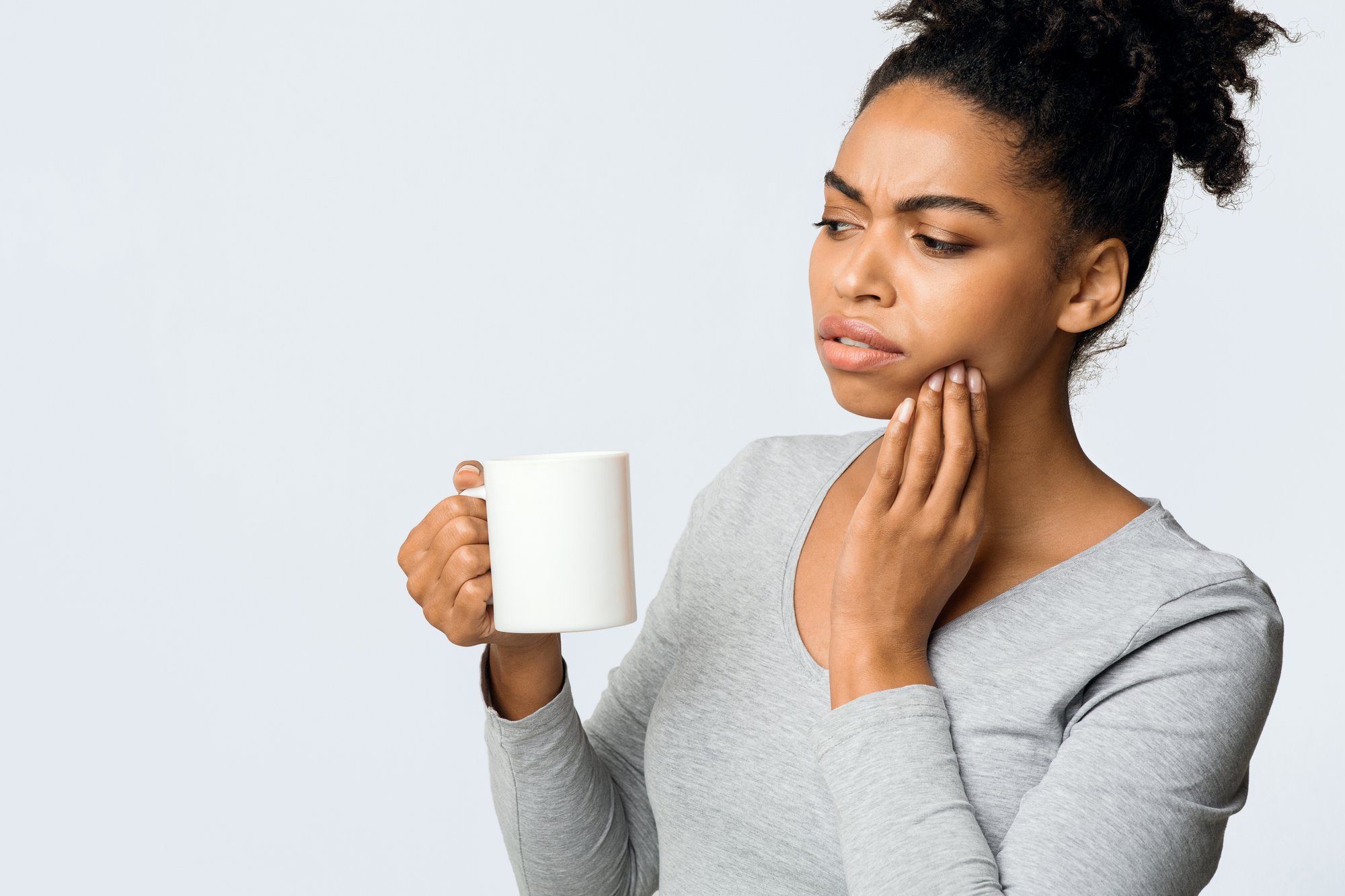Pain in the temporomandibular joint (TMJ) is very common. In fact, it’s estimated that over 10 million Americans experience it. Problems can arise within the TMJ for many reasons, with one surprising cause being the consumption of food and beverages that are high in caffeine. Here’s everything you need to know about the relationship between caffeine and TMJ and what you can do to help ease your jaw pain at home.
What is the temporomandibular joint?
The temporomandibular joint is commonly known as the jaw joint. It connects the lower jaw, or mandible, to the temporal bone at the side of your head. This joint allows your jaw to move up and down and side to side when eating, talking, and even yawning. Since these are vital daily functions, any pain or restricted movement within the TMJ can quickly become frustrating and debilitating.
Things that can make TMJ worse
Many things can cause pain with your TMJ. Physical causes include acute trauma or repetitive injuries, which result in muscle or nerve damage. Temporomandibular joint disorder (TMD) can also be caused by teeth grinding or jaw clenching, both of which may occur because of psychological factors, including stress or anxiety. Other causes include cold weather, exposure to loud noises, and certain medications, including some classes of antidepressants.
Pain or restricted movement at the TMJ may also worsen for many reasons. An improper bite, teeth grinding, and episodes of muscle inflammation can cause uncomfortable flare ups.
Although there are several dental treatments available to help alleviate TMD symptoms, it’s also important to look at lifestyle factors, such as caffeine consumption, if your TMJ pain has worsened. Simple dietary or environmental modifications have the potential to improve symptoms.
The effects of caffeine
One lifestyle factor associated with TMD is the consumption of caffeine. Caffeine is a natural substance commonly found in coffee, tea, and the cacao plant. And although it’s naturally occurring, caffeine acts as a stimulant in your brain and central nervous system to help you stay alert and to reduce feelings of tiredness.
Although you may associate caffeine with your favorite hot drinks, you may also find it in other areas of your diet. Chocolate, sodas, energy drinks, and even green tea can all contain caffeine. Even some medications, such as pain relief pills or flu remedies, contain caffeine.
Caffeine and TMJ
If you want to stop your TMJ pain, addressing the caffeine in your diet is a great place to start.
Caffeine acts as a diuretic. This means that it encourages your body to excrete more fluid as urine. Not only does this make trips to the bathroom more frequent, it can also lead to dehydration. When the muscles at the jaw become dehydrated, it can affect their overall function, leading to pain or reduced joint movement.
As caffeine is also a stimulant, it can cause feelings of anxiousness, irritability, and anxiety. If there’s too much caffeine in your diet, you might experience restlessness and even insomnia. The increased levels of tension and sleep interference can act as TMJ triggers and grinding promoters in those who are prone to TMJ difficulties. The ensuing jaw clenching and tightening of the facial muscles can worsen TMJ, leading to a cycle of discomfort and jaw stiffness.
It may therefore help to cut caffeine out of your diet for a couple of weeks to see if this improves your symptoms.
Treating TMJ
If you’ve noticed your TMJ getting worse, remember that it’s easy to get effective treatments for it at Arkansas Family Dental. Splints, guards, reshaping of biting surfaces (equilibration), and restorations may all be offered dependent on your individual history and findings on dental examination.
In addition to these modern dental treatments, it’s important to address lifestyle factors that may negatively affect your TMD. Alongside reducing the caffeine in your diet, consider reducing your alcohol intake. Like caffeine, alcohol is also a diuretic and can cause poor quality sleep. Combined, these may cause jaw clenching or teeth grinding. Avoiding cold foods and beverages may also prevent jaw pain, and wearing ear protectors can avoid headaches and any resulting facial tension.
Whichever treatment your dentist recommends for TMJ, it’s wise to also address caffeine and any other triggers.
For more information
If you’re hooked on your daily dose of coffee, know that caffeine isn’t a friend of the temporomandibular joint. For an appointment to discuss TMJ symptoms or treatment, call us at (501) 381-0471, or schedule an appointment today.

